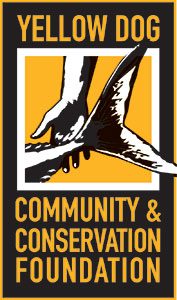 From Yellow Dog Fly Fishing:
From Yellow Dog Fly Fishing:
Belize is home to the world’s second largest barrier reef and what many consider the hemisphere’s greatest variety of shallow water sportfishing, snorkeling, and diving. This diversity truly set Belize apart from all other global fishing destinations.
While the Belizean sportfishery has benefited from nationwide legislation that mandates catch and release for bonefish, permit and tarpon all throughout the country (legislation that has now been place for ten years), these species are now facing a serious and immediate threat from gillnets, which indiscriminately target gamefish as well as a variety of species, including, but not limited to sea turtles, manatees, subsistence species such as snapper, and apex predators. Because of an unsystematic approach to harvest and critical species that end up as fatal by-catch, gillnet fishing is in direct conflict with other sectors of the commercial fishing industry and a direct threat to the health of Belize’s sportfishing resources.
Currently, Belize has over 2,500 licensed commercial fishermen, with only 83 people (roughly 3% of the commercial fishing population) licensed as active gillnetters. This small number of individuals pose a serious danger to sportfishing’s economic impact for the country:
• Tarpon, permit, and bonefish generate over $100 million annually
• Sportfishing industry provides 2,500 to 3,000 jobs
• Legal and illegal gillnets are devasting flats and off-shore fish populations
Over the past year, a broad coalition of stakeholders have unified to launch an organized effort for a nationwide gillnet ban. This coalition includes the Belize Gamefish Association, the Belize Tourism and Industry Association, the Yellow Dog Community and Conservation Foundation, Oceana, Audubon Belize, the World Wildlife Fund, Turneffe Atoll Trust, and several others. Working together, the coalition has launched a community-based “Alternative Livelihood Program for Gillnet Fishers” that will not only buy up and destroy all gillnets from the 83 commercial fishermen who possess legal licenses, but also introduce job retraining and a degree of financial support for those that are negatively affected by a nationwide gillnet ban. For a resource valued at over $100 million and a sportfishing destination that matters so much to the fly fishing industry as a whole, this is a solution that can – with the proper amount of support – solve this problem.
Continued research and funding are required to support this community-based approach. Yellow Dog Flyfishing Adventures encourages the fly fishing industry, anglers, and anyone who cares about Belizean gamefish to get involved.
###
For more information or to learn how you can help:
Dillon Gruber
Associate Executive Director – Yellow Dog Community and Conservation Foundation
[email protected]
888-777-5060
The Yellow Dog Community and Conservation Foundation works to enhance communities, build partnerships and support conservation in places where great fishing is found. With over 30 past and current projects, YDCCF is a leader in grassroots angling and community conservation throughout the world.



